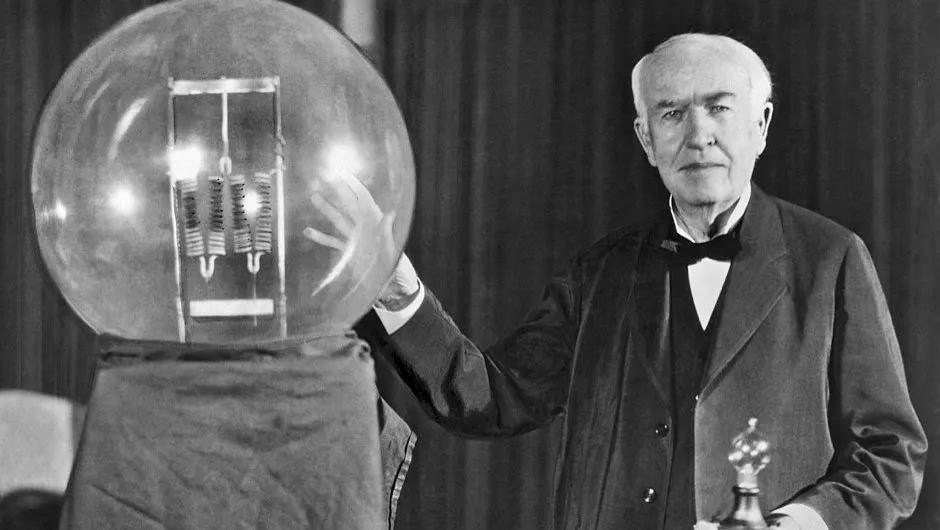Imagine pouring your heart and soul into a project, only to watch it crash and burn. Or putting yourself out there in a relationship, just to end up heartbroken. Setbacks like these are inevitable when you set big goals for yourself. But here’s the secret: building resilience is the key to overcoming them.
Whether it’s a project that didn’t take off, or a personal relationship that ended, you only truly fail when you give up after a setback. Part of achieving success is overcoming adversity, and getting back up after being knocked down.
But how do you build resilience to do that? The answer is to redefine your relationship with failure.
Because failure is inevitable. And it’s necessary. You can only be so resilient and tough without failing a few times. Here’s the thing, though:
It’s not failure that prevents us from achieving our dreams. It’s the fear of failure.
Thomas Edison, considered one of the most prolific inventors in history, once said:
“I have not failed. I’ve just found 10,000 ways that won’t work.”
Edison famously invented the light bulb. Light bulbs are one of the most important inventions in modern history. You could say that Edison’s invention changed the course of humanity. That’s a big statement, but it wouldn’t be an exaggeration.

Thomas Edison’s persistence led to the invention of the light bulb
What many of us don’t realize is that we only have light bulbs because one man decided to get back up every time he failed. And his light bulb invention is just one of the many things Edison “succeeded” in making.
One thing that prevents most people from making a difference in the world is the fear of failure. They think they “failed” when things don’t work out. Because of that, they don’t even start.
They don’t want to end up a failure. But here’s the thing: When you avoid failure, you also avoid success. I’m not going to lie to you. The only ways to guarantee that you won’t fail are these:
- Don’t try to create anything new.
- Only do what every single person already does.
Sounds like a good plan for life? No. You’ll just waste your potential. You see, you can only discover your true potential by taking risks and willingly facing the unknown.
When you do one of those 2 things that guarantee success, you’ll just live a life that’s been lived by others many times. And when you play it safe, you only end up getting nowhere. Sooner or later, we all die. It’s just a matter of time. The important thing is to use our time wisely.
So why are we scared of failure? And how do you deal with that fear? I’ll answer the first question now: We’re scared because we make a big deal of failure. But it shouldn’t be a big deal.
Behind every “overnight success” are countless failures
I’ve always been fascinated by the backstory of successful people and companies. One of my favorite stories is that of Sara Blakely, the founder of Spanx. She grew up in a household where failure was reframed as a sign of growth.
In one of her interviews, she shares that her dad asked her and her brother what they had failed at every week, and if they didn’t have anything to say, he would be disappointed. And they would have “failed” to learn something new that week.
That’s a great way to look at failure. When you fail, you learn something. Failure helps you to become better. You can destigmatize failure by:
- Sharing your failures with others
- Analyzing your failures and trying to learn from them
- Realizing that everyone fails
Don’t believe me? Check out these examples:
- JK Rowling’s first Harry Potter novel was rejected by a dozen publishers. It took her a year to find a publisher after she finished the manuscript.
- Sir James Dyson, one of the most recognizable names in vacuum cleaners, tried 5,127 prototypes that failed before he made one that worked. That’s a lot of vacuum cleaners that didn’t work before he made one that did.
To the people who only look at the destination: These people are overnight successes. One day, they suddenly became famous. But there were many years of struggle and persistence to get there.
It’s a good lesson for all of us to destigmatize failure. But it’s also important to look at failure in a different way too.
Learn to love failure
The next time you fail, pretend that you’re happy about it. You’re probably thinking now that you’re NOT happy because failure sucks. It’s painful. But it’s only that way if you see it that way.
You have the power to see things in any way you like. Without changing your circumstances, you could look at a situation from 20 different angles. And from every angle, you’ll have a different opinion. It’s a matter of picking the angle that serves you best.
So, next time you fail at something (and you will), congratulate yourself. Why? Because you had the guts to try.
Here’s what you can do to start thinking differently about failure:
- Develop a growth mindset.
- Stop treating failure as an end state.
The first point is about how you see yourself. When you fail, do you see it as a sign that you’re just not good at something? Or do you see it as feedback? When you have a fixed mindset, you think that people don’t change.
But we do change. And we can become better at anything.
Carol Dweck, a psychology professor at Stanford, and one of the leading researchers in the field of motivation, conducted a research on how people view themselves. She found that people have either a fixed mindset or a growth mindset.
Those with a fixed mindset tend to believe that talents are innate gifts; people are either born good or bad at something, and they can’t change. Those with a growth mindset believe that skills and traits can be developed through hard work and dedication.
Dweck’s research showed that those with a growth mindset are more resilient and likely to succeed. That’s because they see failures not as fixed limitations, but as opportunities to learn and improve.
If you’re only going to do one thing, do this one.
When you stop seeing failure as the end of the line, you no longer see it as something scary. You can just evaluate what went wrong and try a different approach. When you continue to do that, you’ll eventually succeed.
If you want to succeed, start failing
Want to build resilience and achieve your dreams no matter how big? Don’t be afraid to fail. Is it easy? No, definitely not. But it is doable.
Failure can be scary, no doubt. But it’s also a great learning opportunity. That’s why I always try to learn from my setbacks and mistakes. And I also celebrate them. When you succeed or fail, you want to be honest to yourself. That’s part of the reason why you celebrate success and failure.
At Google X, Google’s (now Alphabet’s) semi-secret research and development facility, there’s a rule to “fail fast.” Astro Teller, the head of Google X, gives bonuses to people who try something really big and fail.
Google, of course, is a company that’s not afraid to try new things. And they often fail. But they’ve also made a few successes. And one of those successes is Google X. They created a culture where they’re not afraid to fail.
When you celebrate failure, you make it normal to fail. And when that happens, people are more likely to take risks, and to challenge the status quo. It seems like a paradox, but when you celebrate failure, you will have more successes in the long-run.
But more importantly: You’re also more likely to have more fun. And that’s what life is all about.



